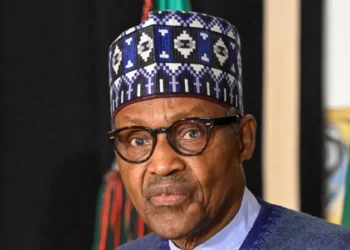By Bartholomew Madukwe with Agency report
“China is our second home,” recently installed chief executive of Volkswagen, Herbert Diess said at a Beijing press conference.
According to him, the company would invest 15 billion euros ($18 billion) in electric and autonomous vehicles in China by 2022.
Diess noted that the company has no plans yet to go it alone in China, but he sees investment opportunities afoot as Asia’s largest economy prepares to open up its market to automakers.
It will be recalled that last week China said it would open up the market to foreign automakers, which have been encumbered by ownership limitations in the country for more than two decades.
Speaking on the development, Diess stated that, “the car industry is not only 50-50 joint ventures. We need to partner with the local tech enterprises. There is a lot to do, but there might be one or other investment opportunities. Investment is always an option.”
Diess described the policy shift as a “positive move forward” that would generate further growth and investment in China.
Thousands of Chinese auto enthusiasts are expected to wander the halls of the mega exhibition centre this week, with electric cars and gas-guzzling sport-utility vehicles grabbing the spotlight, reports AFP.
Nissan presented its first Made in China electric car produced for Chinese consumers, the four-door Sylphy Zero Emission, with a drive range of 338 kilometres.
“The new Sylphy Zero Emission is the next step in our electrification strategy for China,” said Jose Munoz, Nissan’s chief performance officer, adding that the company will unveil 20 electrified models over the next five years.
Auto executives may have their minds on the boiling trade war between Beijing and Washington, with every twist and turn fanning fears that it could bring their plans for China to a screeching halt.
Diplomaticwatch observed that the changes will end shareholding limits for new energy vehicle firms as soon as this year, followed by commercial vehicles in 2020 and passenger cars in 2022.
Foreign automakers who account for more than half of vehicle sales in China have cautiously welcomed the changes, with VW saying it has “strong” local partners in their joint ventures.
“This will have no impact on our JVs. But the overreaching principle is important. Hopefully, liberalisation will as well help for fair competition, and having a level playing field,” CEO of Volkswagen Group China, Jochem Heizmann hinted.
The mega exhibition comes as China’s market hits a transition period — the explosive growth in car sales seen over the last decade slowed last year and data from early this year point to a continued slump for many vehicle types.
Chinese consumers are following their American peers toward SUVs while policymakers in Beijing push an all-electric future.
Accounting for some 28.9 million car sales last year, the Chinese market could soon match those of the European Union and United States combined.
It was gathered that General Motors sold over four million cars here last year, more than in the United States. Volkswagen sold more than three million, roughly six times its home market.
But domestic firms are outselling foreign firms in the SUV segment.
In the electric car market the figures are even more lopsided, as Beijing has heaped money on projects to dominate what it sees as the future.
At the auto show, the domestic upstarts have a separate exhibition hall mostly to themselves — 124 of the 174 electric car models on display are homegrown.
Government subsidies help consumers purchase the green cars, while policymakers are planning a quota system to force producers to build electric vehicles, with plans to one day phase out gas vehicles altogether.








